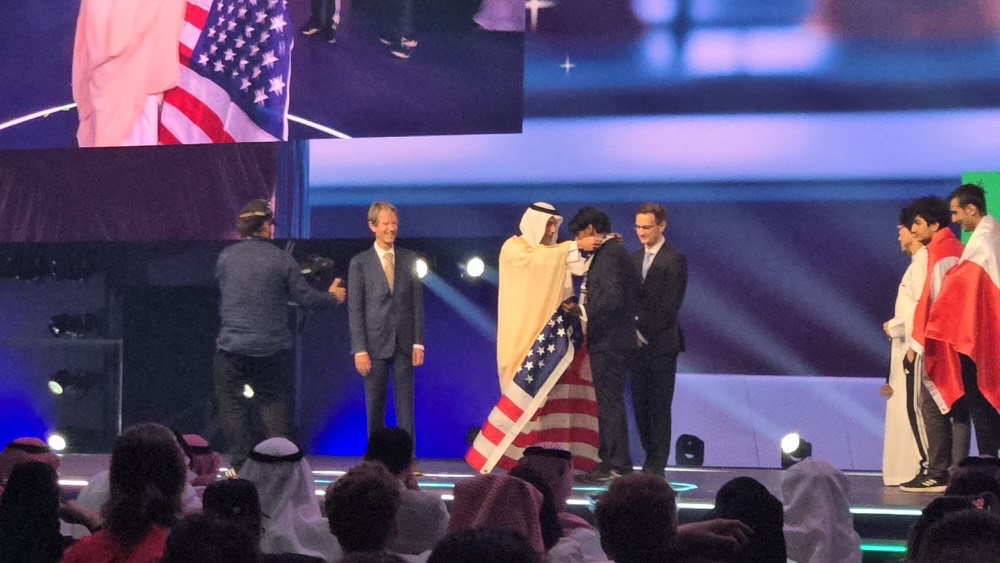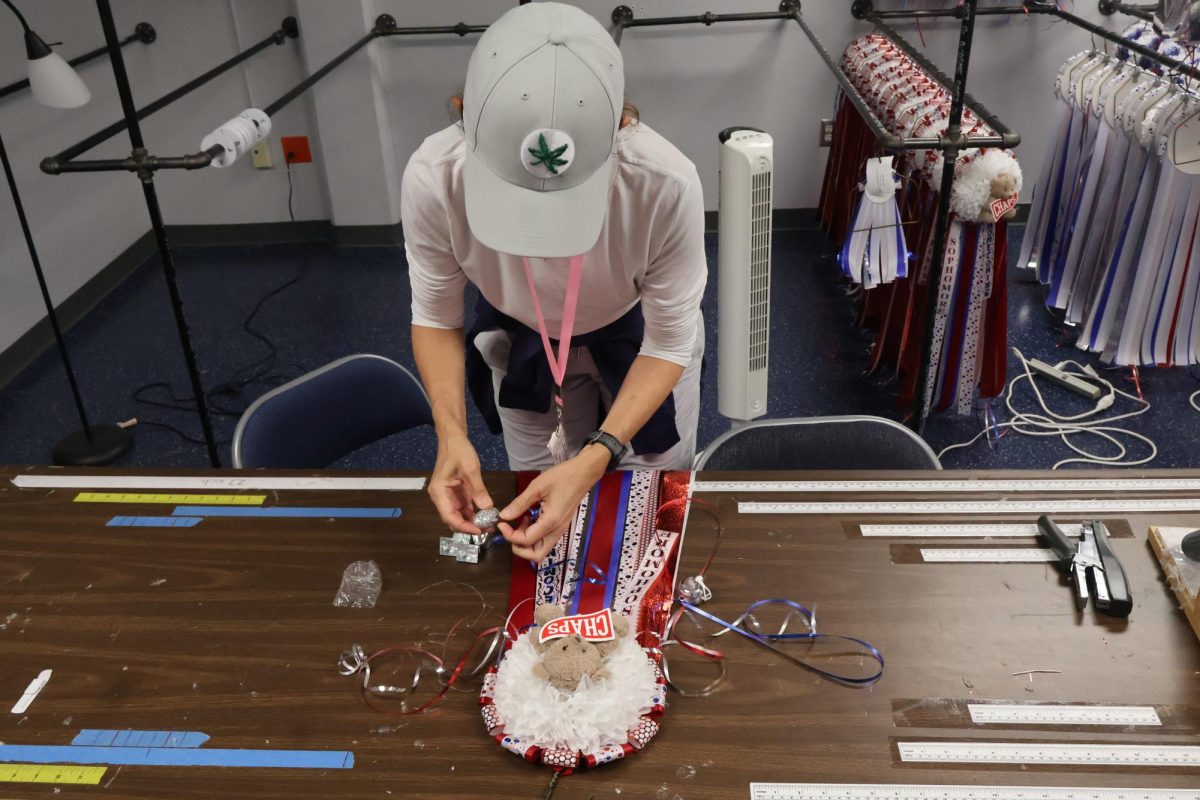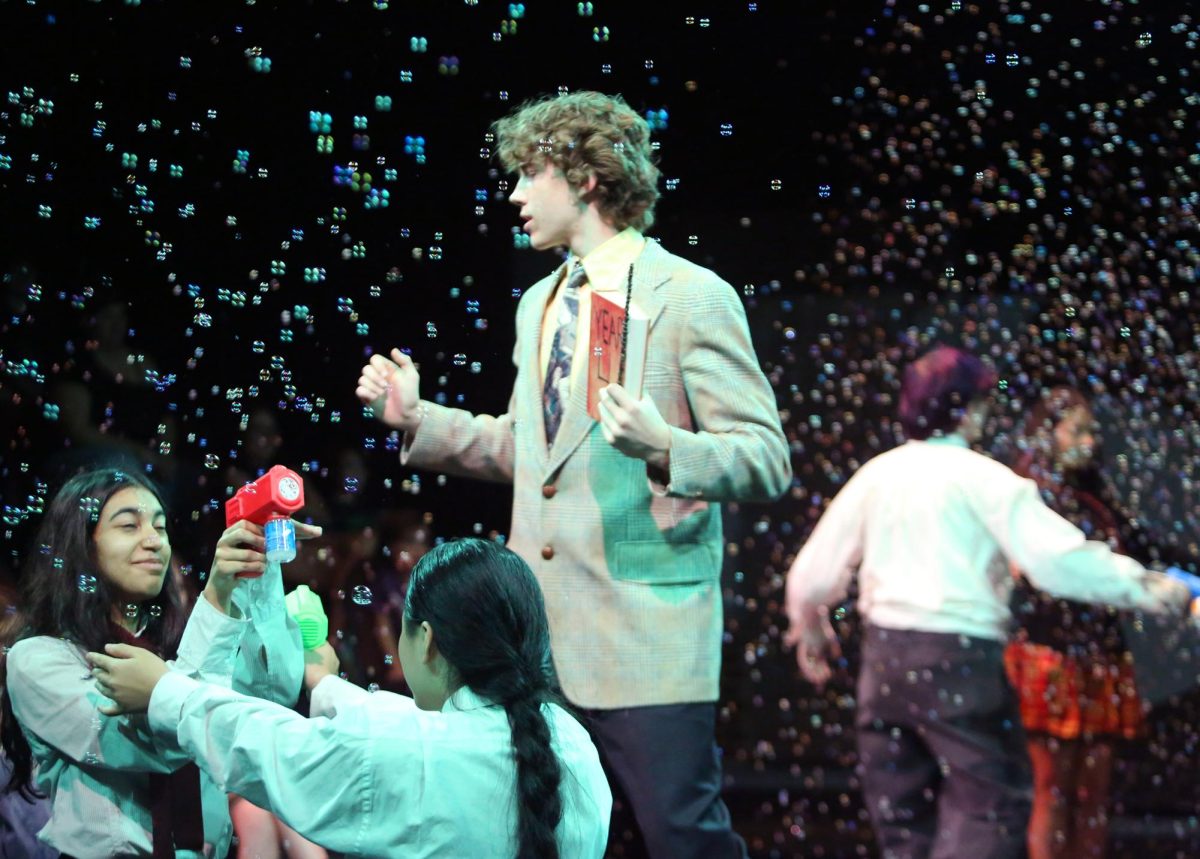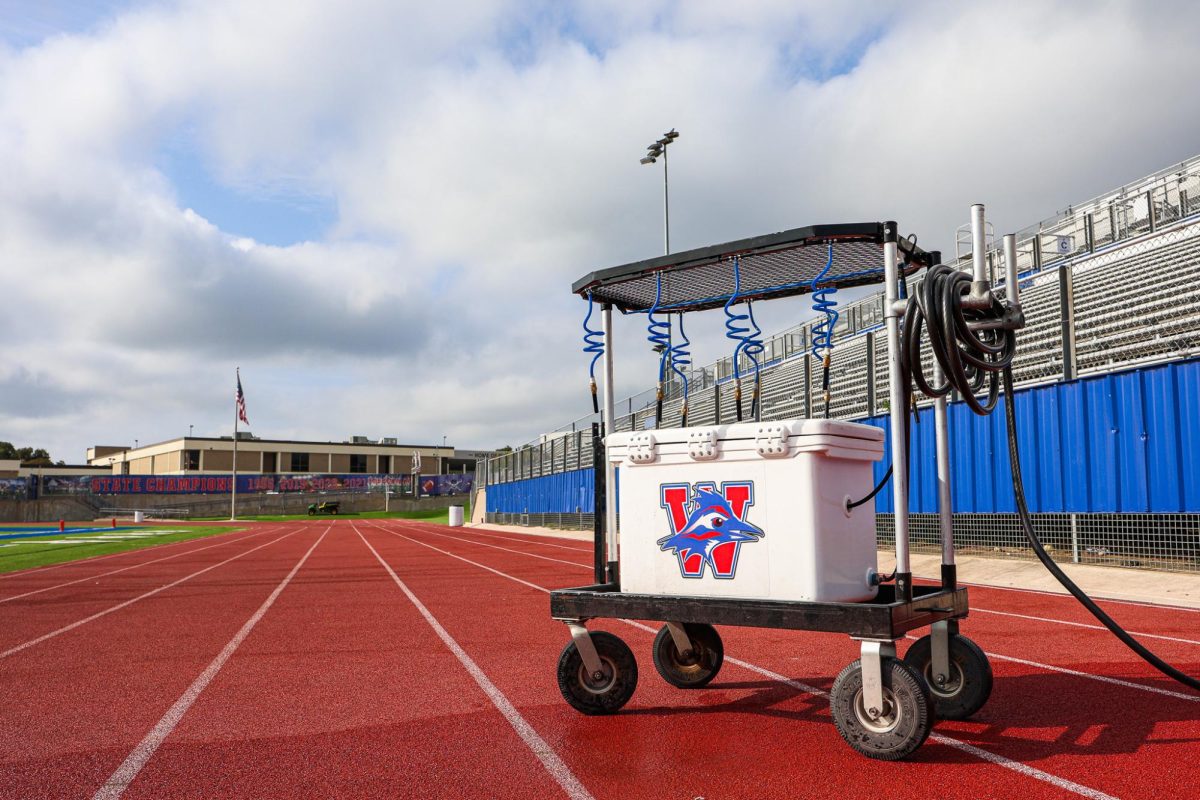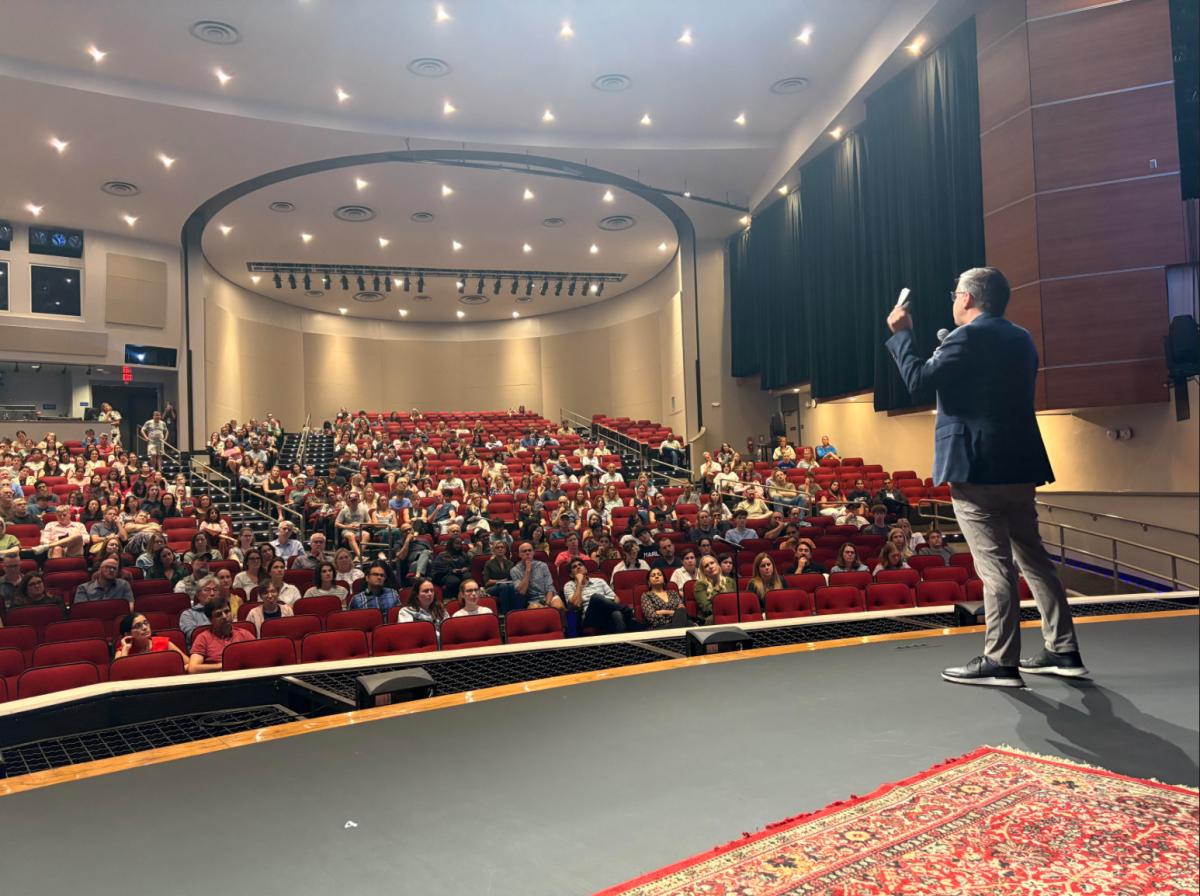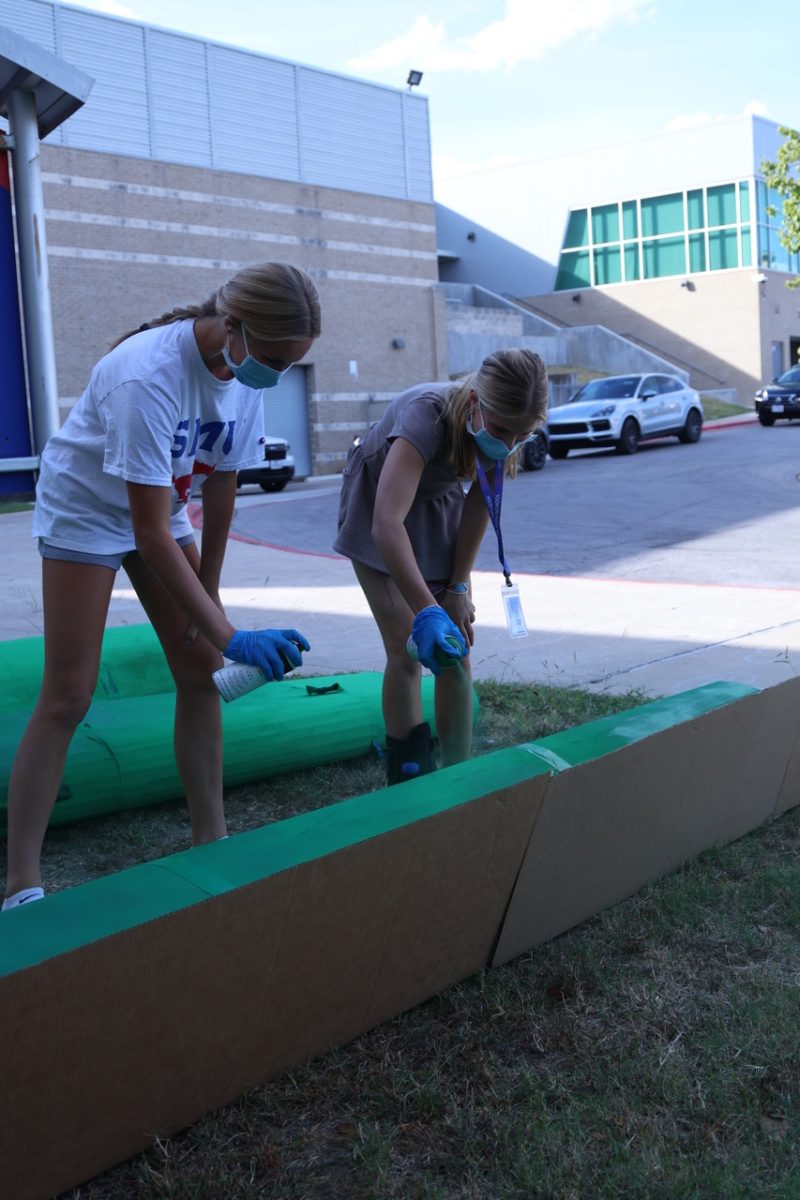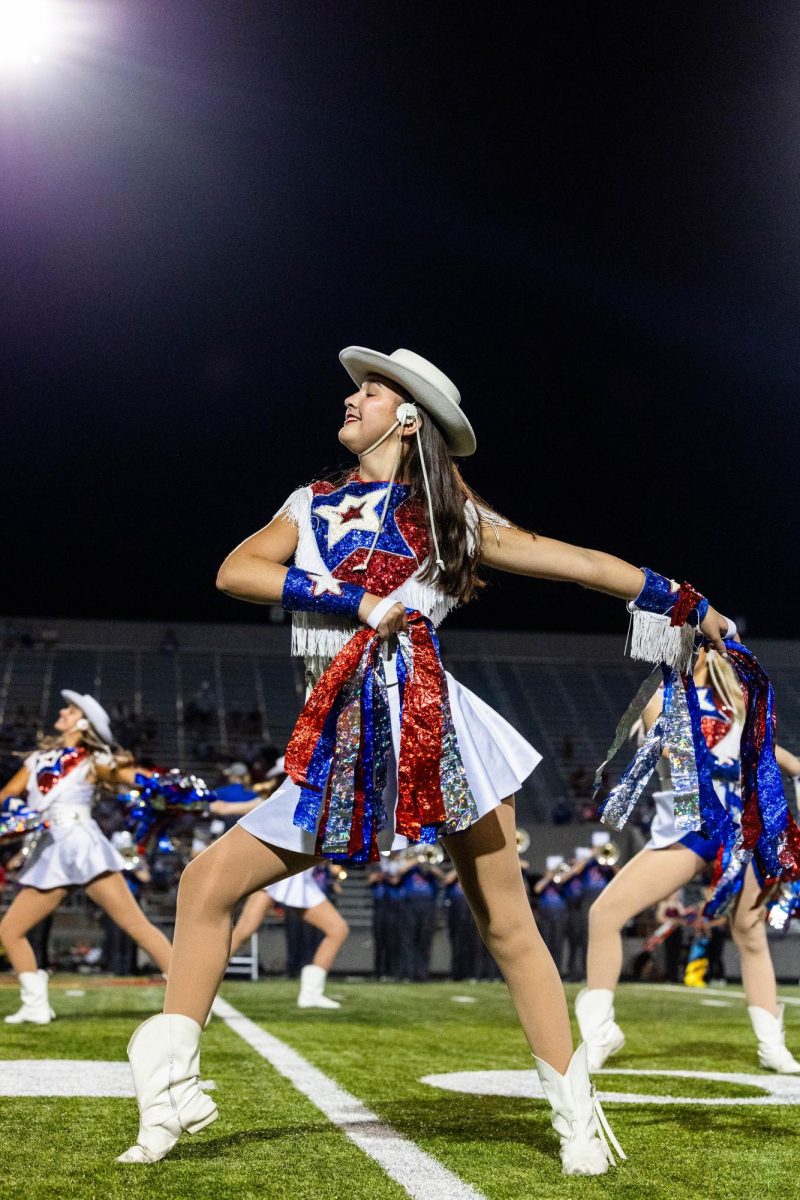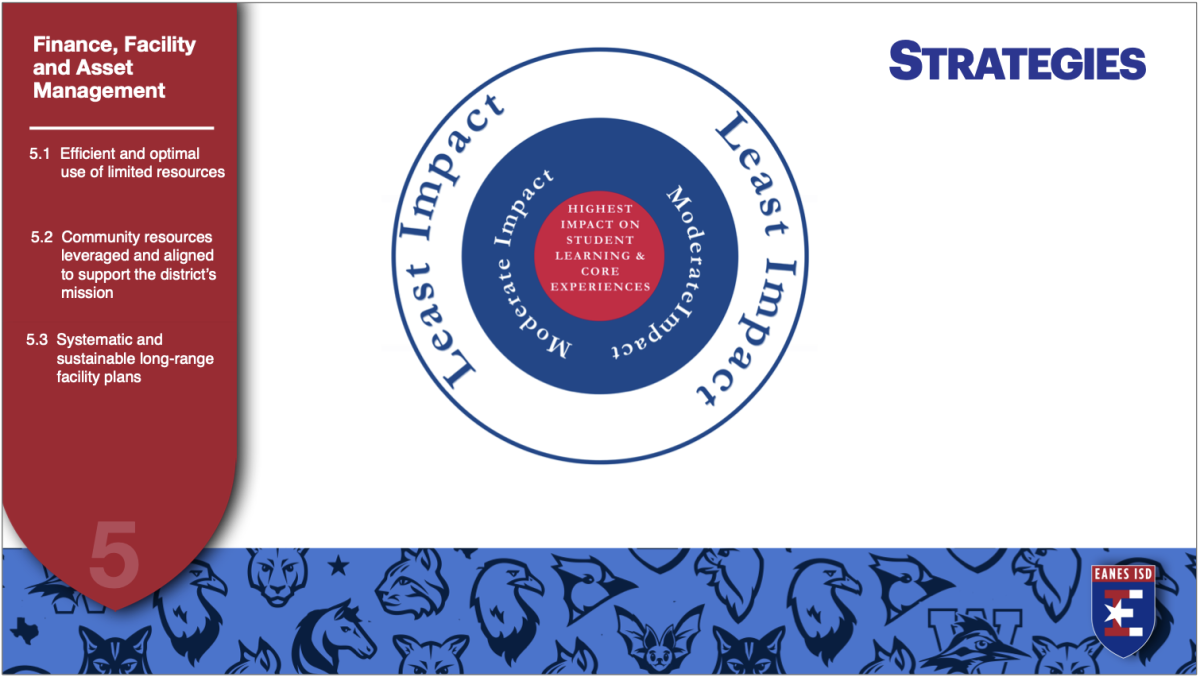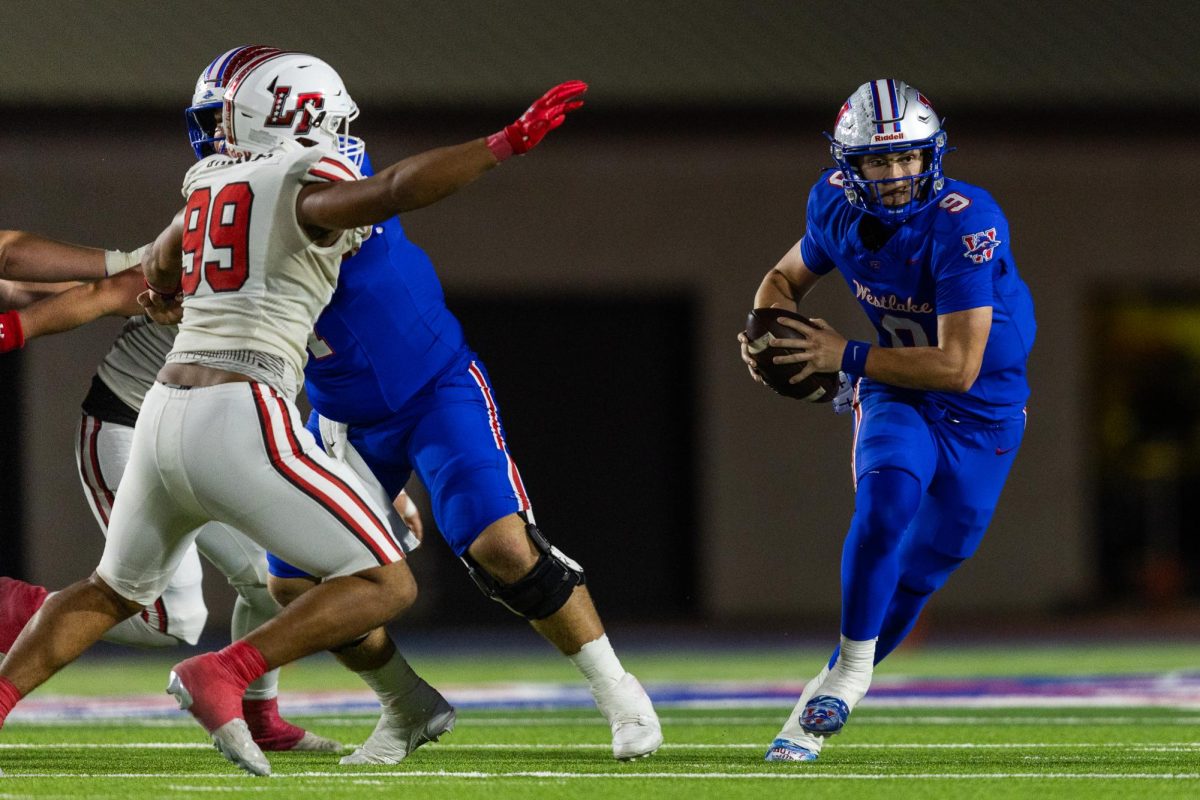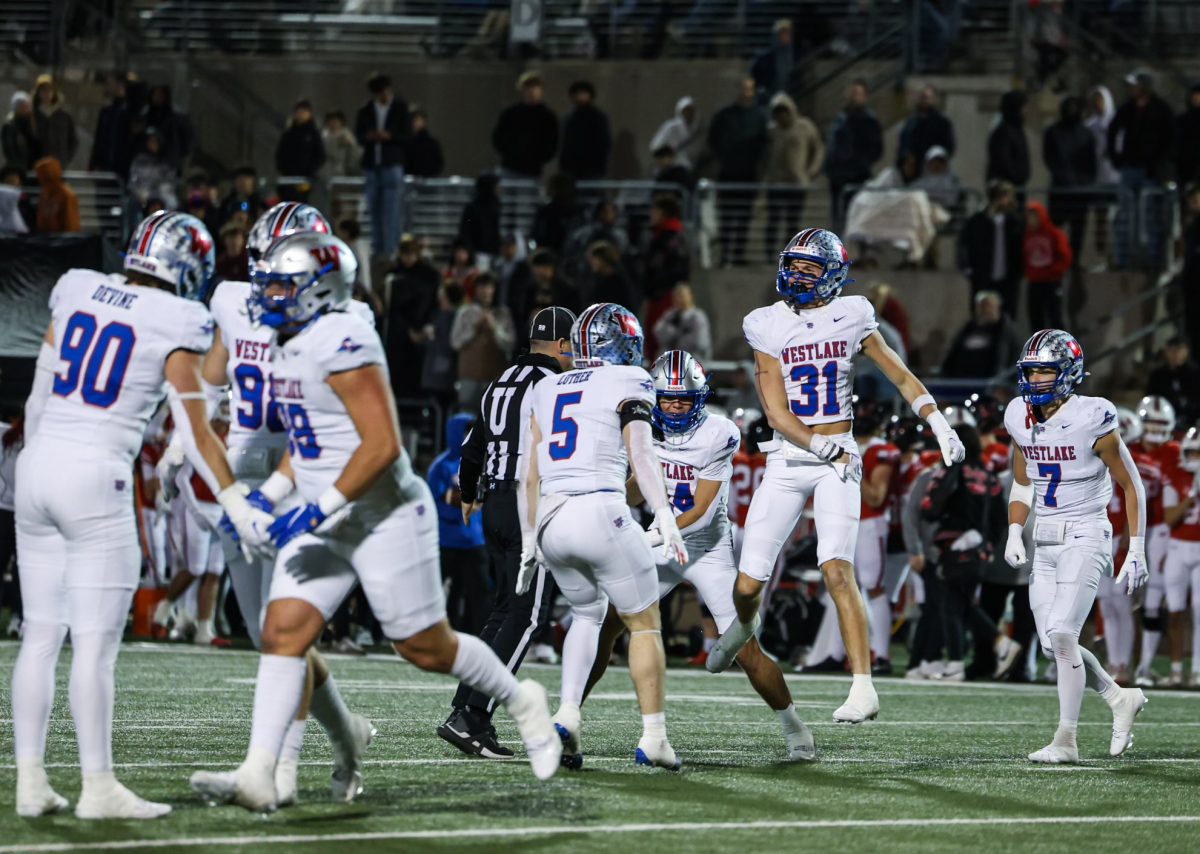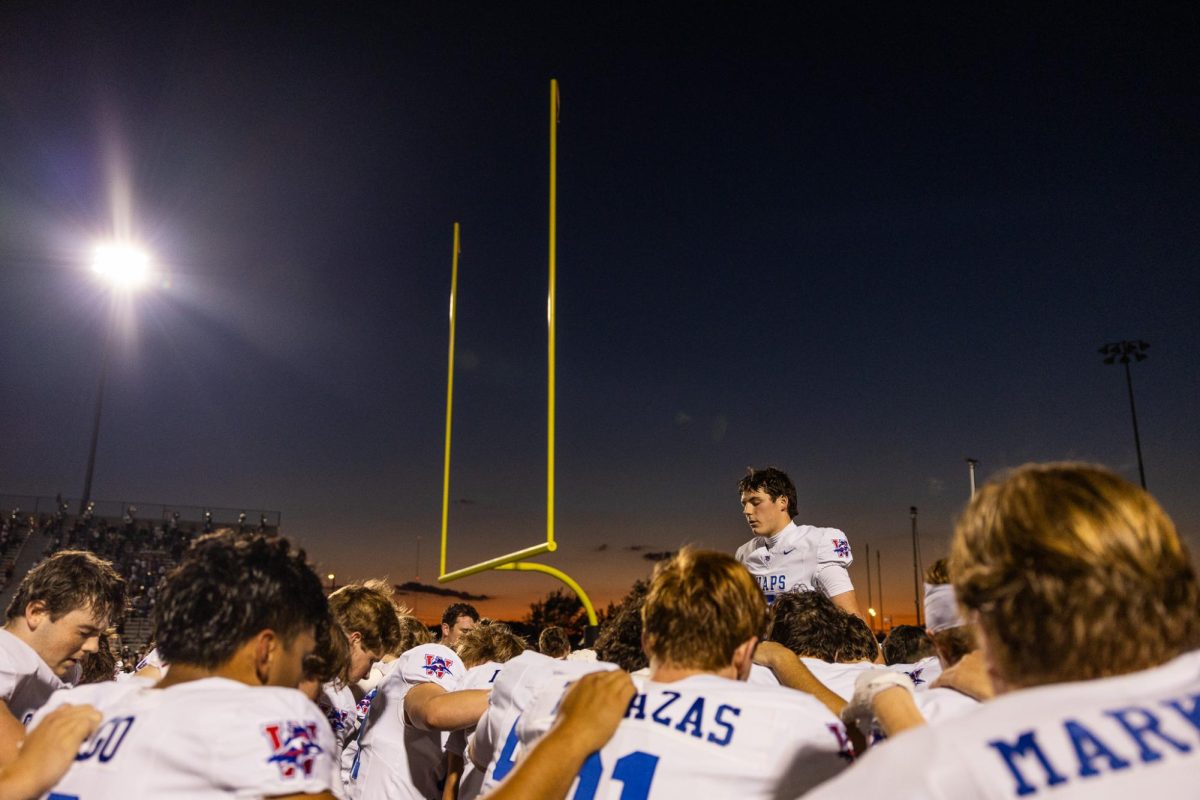Up against programmers from around the world and the clock, senior Ronok Ghosal represented the United States of America and competed in the first International Artificial Intelligence Olympiad (IAIO) in Riyadh, Saudi Arabia Sept. 8-12. Having to solve, program and debug in just 5 hours, Ghosal faced roadblocks amidst the programming part of the competition, a problem thought to be detrimental against a strong pool of competitors.
“At first, my code just didn’t work at all,” Ghosal said. “I had to spend hours just fixing the code. Even after that, I just wasn’t comfortable because I wasn’t sure if my code would match up to others.”
Despite his uncertainty, Ghosal’s experience in previous coding competitions and his personal projects came through and Ghosal returned to the U.S. with a bronze medal.
“Just being at the competition was such an honor,” Ghosal said. “Getting bronze in such a pool of great thinking people, people from IOI, which is basically the highest level of programming there, was really humbling.”
Ghosal was chosen to represent the U.S. through his previous achievements in math and coding competitions, having been chosen for the American Math Olympiad from his success in the AMC12 and American Invitational Mathematics Exam, and reaching Platinum in the United States of America Olympiad (USACO).
Ghosal’s interest in math and computer science began when he lived in California and was surrounded by a STEM culture, leading him to seek out math and coding related activities and competitions after moving to Austin in seventh grade. However, Ghosal wanted to find ways to learn and apply his knowledge further.
“When I started doing these competitions and stuff, I felt really confined to something that I can’t really apply into real life, and I’m just doing it for the sake of doing a competition or getting something on my resume,” Ghosal said. “If I have this knowledge, I’d rather apply it to something that I can see, rather than just get something on my college application.”
Motivated to utilize his programming skills, Ghosal began to become more involved in Artificial Intelligence (AI) and programming he could visualize opposed to the algorithmic coding found in competitions like USACO. Although both revolve around programming and may seem similar to those unfamiliar with the topic, the algorithmic coding skills built from competitions like USACO do not directly translate to programming AI.
“When it came to the computer science part of [IAOI], I got really stressed out,” Ghosal said. “Although I had done a lot of programming in the past, most of the programming in [IAOI] is very different because, instead of being more algorithmic coding, you’re going into more model choosing and processing.”
IAOI has two five hour parts of the competition, one focused more on math, and the other more on programming. The math section tests participants on the foundations of AI, such as data clustering and perceptron algorithms, doing the work the computer does behind the scenes. The programming competition focuses more on designing and choosing AI models.
In addition to the competition, there was a portion in which participants could talk to a variety of companies about AI, including companies such as Amazon, Google, Lucid and Samsung. Through this opportunity, participants were able to discuss with business owners and people involved in AI, providing them with the opportunity to learn more about the business side and ethics of AI.
The ethics behind AI are a heavily debated topic as it becomes more prominent in everyday life. The topic of AI is often surrounded by questions about whether or not it should be used in academic settings, if it will replace and take away the jobs of people and whether or not it takes away from human creativity and originality. Companies that are looking to heavily utilize AI have to thoroughly look at the benefits and drawbacks of AI as they develop their products.
”We see cars kind of developing AI and self-driving things,” Ghosal said. “Let’s say [someone’s] driving on a road, and there’s a pedestrian, and they have two choices. Either, they’re going to run over the pedestrian, if they’re self driving, or they have to run off the road and potentially kill the driver. Who are you going to choose? These are issues that can’t be solved with AI. Although we think these things are like these robots and machines [that] are so powerful, you really have to think about the human aspect of things.”
However, that is not to say that AI cannot be used to benefit humans. Another aspect of Ghosal’s programming background includes his company Nisurg. Nisurg began when Ghosal was volunteering to play piano at a nursing home.
“What I noticed there is that the staff always are talking about different accidents that patients get into because maybe someone had really high blood pressure last night and that caused them to get dizzy and fall during their morning walk,” Ghosal said. “That hurt me, because I see that the people I care for every day are getting hurt, so I was like ‘if I have this [programming] knowledge with me, I’d rather use it in a way that I can help people with.’”
NisurgCare is an app developed by Ghosal and sophomore Rhea Ghosal that aims to utilize AI to prevent accidents in nursing homes. NisurgCare connects to wearable technology and utilizes the data to detect anomalies and alert caregivers to pay extra attention to the user. Nisurg has since continued to develop ideas for more ways to utilize AI in a way that can help keep people safe.
Backed by programming knowledge and success in a variety of competitions, while navigating the questions and doubts of AI, Ghosal continues to utilize his talents and AI in hopes of making the world a safer place.

